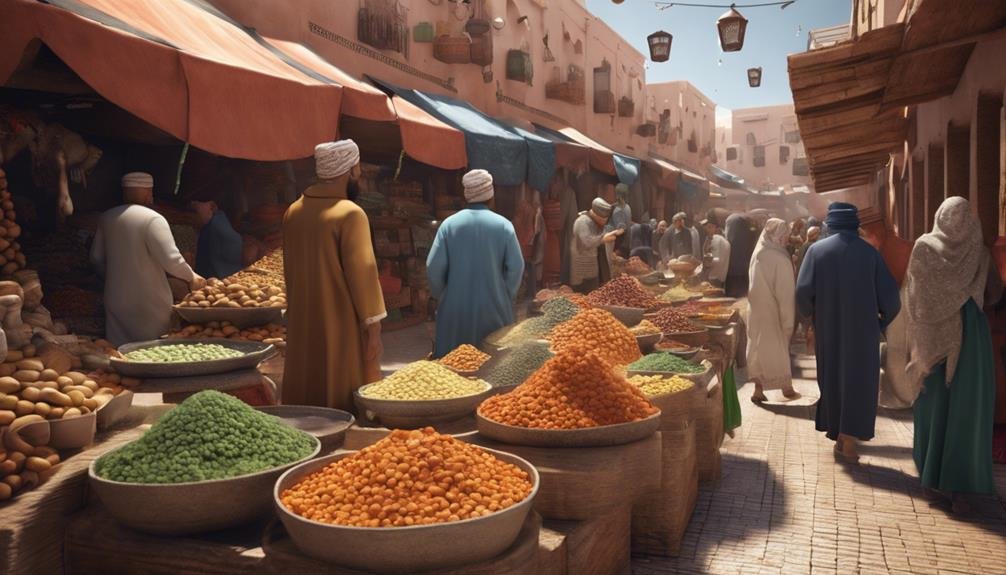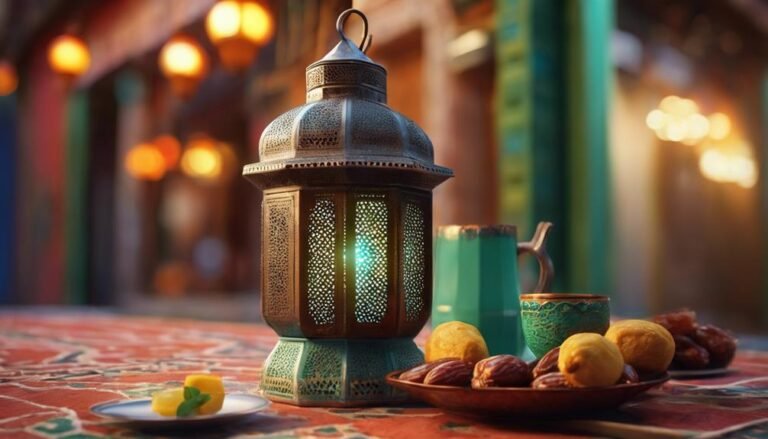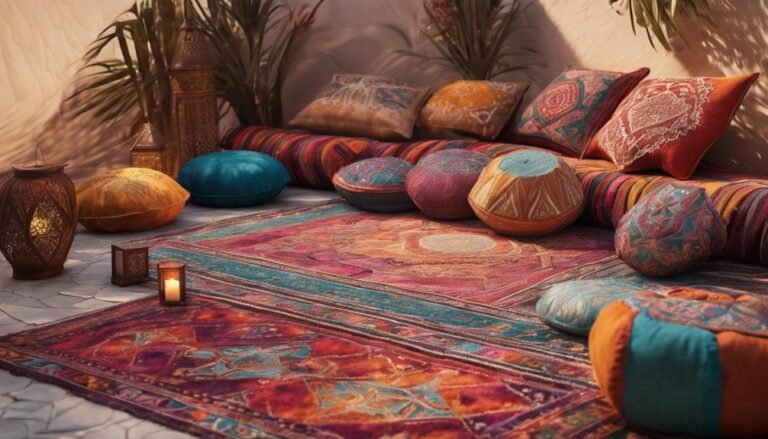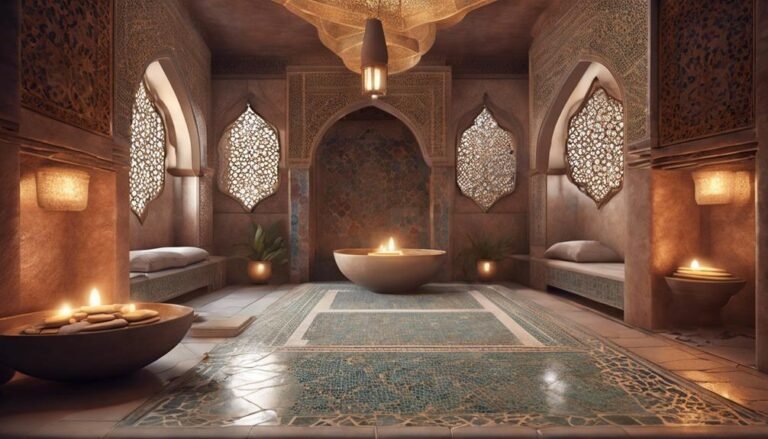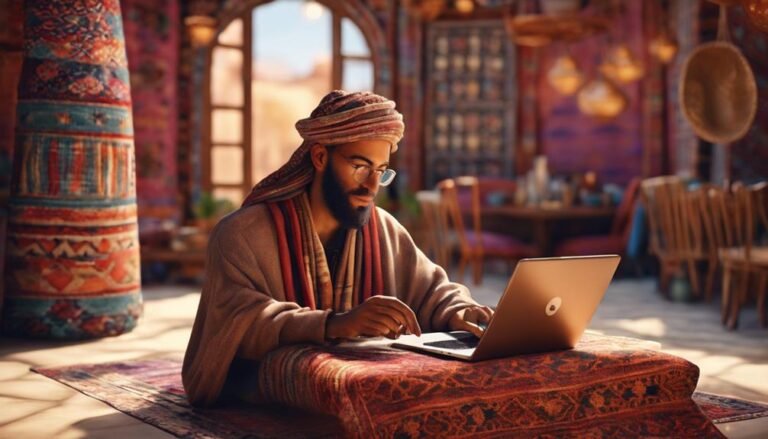In Morocco, gender norms are deeply rooted in religious teachings, traditional customs, and colonial influences. Society dictates specific roles based on gender, with men often as providers and women as caregivers. Family dynamics play a significant role, with mothers primarily responsible for child-rearing and fathers seen as authority figures. Gender disparities persist in education and the workplace, limiting opportunities for women. Exploring these norms is essential for progress, promoting inclusivity, and empowering individuals to redefine traditional roles. Explore further into Morocco's complex gender landscape to understand the nuances and ongoing efforts towards equality.
Key Takeaways
- Gender norms in Morocco influenced by religious teachings, traditional customs, and colonial legacies.
- Traditional roles dictate division of labor and family expectations based on gender.
- Women face workplace inequality, limited career growth, and disparities in education opportunities.
- Societal pressures enforce strict roles for men and women, limiting personal development.
- Challenging stereotypes and promoting inclusivity crucial for breaking away from traditional gender norms in Morocco.
Historical Roots of Gender Norms
Rooted deeply in the history of Morocco are the gender norms that have shaped societal expectations and behaviors for generations. These norms find their historical origins in a blend of religious influences, traditional customs, and colonial legacies. The societal impact of these gender norms is profound, dictating roles and responsibilities based on gender, with women often relegated to domestic duties while men are expected to be the primary providers.
Historically, Morocco's gender norms were influenced by Islamic teachings, which emphasized gender segregation and prescribed specific roles for men and women within the family and society. These norms were further reinforced by the traditional Berber customs that valued honor, modesty, and the preservation of family lineage. Additionally, the legacy of French and Spanish colonialism introduced new dynamics to gender relations, impacting the power dynamics between men and women.
The societal impact of these historical gender norms is evident in the unequal distribution of rights and opportunities between men and women. While recent efforts have been made to promote gender equality in Morocco, the deep-rooted historical origins of these norms continue to shape societal expectations and behaviors.
Traditional Gender Roles in Society
You observe how family expectations in Morocco often dictate the roles and responsibilities assigned to individuals based on their gender.
The division of labor in households reflects a traditional structure where men and women are expected to fulfill specific tasks.
These cultural influences shape societal norms and reinforce the importance of adhering to traditional gender roles.
Family Expectations
Gender norms in Morocco dictate strict family expectations, reinforcing traditional gender roles in society. Marriage traditions heavily influence these expectations, with women typically expected to prioritize family duties and childcare while men are often the primary breadwinners.
Parental pressures to conform to societal expectations regarding marriage and family life can be intense, leading to limited autonomy in decision-making for individuals. Daughters are often expected to uphold the family's honor through modesty and obedience, while sons are pressured to provide for and protect their families.
These ingrained roles perpetuate a system where opportunities for challenging these norms are scarce, resulting in a cycle that's challenging to break.
Work Division
Amidst the societal fabric of Morocco, the division of work along traditional gender roles remains deeply entrenched, dictating distinct expectations and responsibilities for men and women. Historically, men have been mainly associated with income-generating activities outside the home, such as agriculture, construction, and trade, while women have been responsible for domestic chores and childcare.
This labor division perpetuates gender inequality by limiting women's access to economic opportunities and reinforcing stereotypes about their roles in society. Despite efforts to promote gender equality in the workforce, cultural norms and expectations continue to shape these divisions.
Breaking away from these traditional roles is essential for advancing gender equality and creating a more inclusive society where individuals aren't confined by predetermined labor divisions based on their gender.
Cultural Influences
In Moroccan society, entrenched cultural norms dictate rigid traditional gender roles that greatly influence the division of labor and opportunities available to men and women. These norms are reinforced through media representation, shaping societal perceptions and expectations of gender roles. Women are often depicted in traditional roles such as homemakers or caregivers, while men are portrayed as breadwinners and decision-makers. This portrayal in the media further entrenches these gender roles, limiting the opportunities for both men and women to break free from these traditional expectations. Globalization has brought about some changes in societal values, challenging these norms and pushing for more gender equality. However, the deep-rooted cultural influences continue to shape the gender dynamics in Moroccan society.
| Traditional Gender Roles in Moroccan Society | Media Representation | Societal Impact |
|---|---|---|
| Women as homemakers and caregivers | Reinforces traditional roles | Limits opportunities for women |
| Men as breadwinners and decision-makers | Entrenches gender roles | Restricts freedom of choice |
Family Dynamics and Gender Expectations
Within Moroccan families, traditional gender roles dictate specific expectations and dynamics, shaping the interactions and responsibilities of its members. Marriage dynamics in Morocco often follow traditional patterns where the husband is typically viewed as the provider and head of the household, while the wife is expected to manage the home and care for the children. This division of roles reinforces the idea of male dominance within the family unit, with decision-making power often resting in the hands of the husband.
Parenting roles also adhere to gendered expectations, with mothers primarily responsible for child-rearing and nurturing, while fathers are often seen as the authority figures. This dynamic can perpetuate stereotypes about gender roles, limiting the potential for shared responsibilities in childcare and household duties. The pressure to conform to these traditional gender norms can create challenges for individuals who may wish to challenge these expectations and seek more equitable partnerships within their families.
Education and Work: Gender Disparities
Gender norms in Morocco greatly influence disparities in education and work opportunities between men and women, perpetuating unequal access to resources and economic empowerment. In Morocco, workplace inequality is prevalent, with women often facing discrimination in hiring practices, lower wages for the same roles, and limited opportunities for career advancement compared to men. This perpetuates a cycle of financial dependence and reinforces traditional gender roles where men are seen as the primary breadwinners. On the other hand, educational opportunities for women are also impacted by gender norms, with societal expectations often prioritizing boys' education over girls'. This leads to lower enrollment rates for girls in schools, especially in rural areas, limiting their access to quality education and subsequently affecting their future job prospects. The table below highlights some key disparities in education and work between men and women in Morocco:
| Aspect | Disparity | Example |
|---|---|---|
| Hiring Practices | Women face discrimination | Women are less likely to be hired |
| Wage Gap | Women earn less than men | Women earn 30% less than men in the same role |
| Career Advancement | Limited opportunities for women | Fewer women in leadership positions |
Challenges to Gender Norms
Challenging traditional gender norms in Moroccan society requires a concerted effort to dismantle ingrained stereotypes and promote equality in all aspects of life. Breaking barriers that restrict individuals based on their gender is vital for progress. In Morocco, societal pressures often dictate strict roles for men and women, limiting opportunities for personal growth and development. Women, especially, face significant challenges in accessing education and entering the workforce due to deeply rooted gender norms.
To challenge these norms effectively, it's essential to address the underlying beliefs and attitudes that perpetuate inequality. By advocating for equal opportunities in education and employment, individuals can begin to shift societal perceptions and create a more inclusive environment for all. Encouraging open discussions about gender roles and expectations can help break down stereotypes and foster a more diverse and accepting society.
While progress has been made in recent years, there's still much work to be done to combat the deeply ingrained gender norms that persist in Moroccan culture. By confronting these challenges head-on and promoting equality at all levels, Morocco can move towards a more equitable and just society for all its citizens.
Future Outlook: Redefining Gender Roles
In order to propel towards a more progressive society, it's imperative to redefine traditional gender roles in Morocco by actively promoting inclusivity and breaking away from restrictive societal expectations. Challenging stereotypes deeply rooted in the culture is essential for paving the way towards a more equitable society. By encouraging individuals to defy preconceived notions of what's deemed acceptable based on gender, Morocco can foster an environment where everyone is free to pursue their aspirations without limitations.
Promoting inclusivity involves creating spaces where individuals can express themselves authentically, regardless of gender. It requires dismantling the rigid norms that confine individuals to specific roles and behaviors solely based on their gender. Embracing diversity and recognizing the value that each person brings to society irrespective of gender is vital for progress.
Moving forward, it's essential to implement educational programs and initiatives that challenge traditional gender roles and empower individuals to defy societal expectations. By doing so, Morocco can foster a more inclusive and accepting society where everyone has the opportunity to thrive.
Conclusion
As you navigate the intricate web of gender norms in Morocco, you witness a tapestry woven from threads of tradition and modernity. The fabric is rich with history, intricately detailing the roles and expectations placed upon men and women.
Yet, cracks begin to form, revealing glimpses of change and progress. Like a delicate dance between past and present, the future holds the promise of reshaping these norms into a new, vibrant pattern of equality and empowerment.

The Editorial Team is a passionate group of Morocco enthusiasts dedicated to sharing the beauty, culture, and wonders of this captivating country. With diverse backgrounds and a deep love for travel, we strive to bring you engaging and informative content that inspires your Moroccan adventures. From uncovering hidden gems and sharing local insights to exploring mouthwatering cuisine and showcasing the vibrant lifestyle, our team is committed to providing you with valuable resources and exciting stories that enhance your exploration of Morocco. Join us on this journey as we celebrate the rich heritage and unforgettable experiences that make Morocco truly special.

